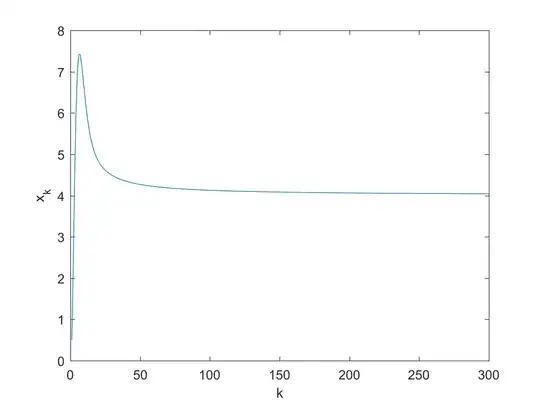Consider the sequence $$ x_k = \frac{1}{2^k} \sum_{l=1}^k \left( \begin{array}{l}k\\l \end{array} \right) \left( \frac{k}{l}\right)^2,$$ where the first term in the sum is the binomial coefficient.
Question: Does this sequence converge or at least remain bounded?
I tried evaluating the limit with Mathematica without any luck. However, the numerical analysis below suggests that $x_k$ converge to a finite value (maybe 4?).
